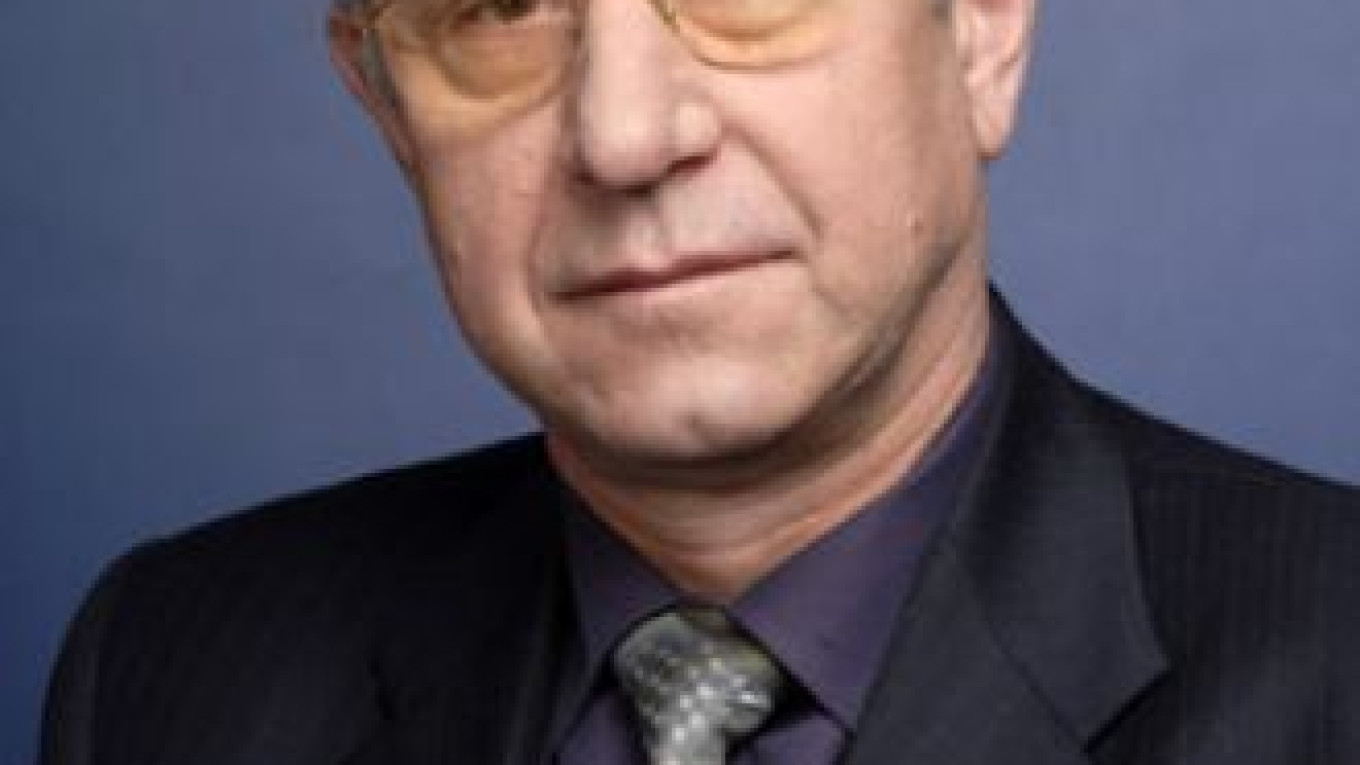LUKoil vice president Anatoly Barkov was hospitalized after a car slammed into his Mercedes on a snow-clogged street in southwestern Moscow during Thursday morning rush hour.
A 35-year-old woman driving a Citroen car slid into the oncoming lane on Leninsky Prospekt, colliding head-on with the Mercedes carrying Barkov, Interfax reported.
Barkov was hospitalized in stable condition, while the female driver died at the scene, the report said.
A passenger in the Citroen, Vera Sidelnikova, 72, a professor of the Center for Midwifery and Gynecology, died of her injuries later in the hospital. Rossia television called her a well-known specialist in her field.
Barkov's driver sustained minor injuries and declined to be hospitalized.
Barkov, a 1992 graduate of the Ufa Oil Institute, has served as vice president in charge of LUKoil's Main Division of General Affairs, Corporate Security and Communications since 1993, according to the company's web site. It said he was born in 1948.
The accident came as Moscow struggled to dig itself out of a record snowfall that dumped an unprecedented 67 centimeters of snow on the city over the extended holiday weekend.
Two other people were killed and 12 were injured at another head-on collision in the Izmailovsky Park district of eastern Moscow. The driver of a Daewoo Nexia violated traffic rules by driving in the ongoing lane and slammed into a Gazel minibus carrying passengers on a shuttle route between the Moscow regional town of Balashikha and Moscow's Partizanskaya metro station, traffic police said.
The Daewoo driver and a minibus passenger died at the scene.
Traffic police said they found that the minibus driver had also violated traffic rules by carrying passengers on a route that he wasn't authorized to travel.
"It turned out that the minibus driver wasn't entitled to bus passengers on that route," a police source told Itar-Tass.
A Message from The Moscow Times:
Dear readers,
We are facing unprecedented challenges. Russia's Prosecutor General's Office has designated The Moscow Times as an "undesirable" organization, criminalizing our work and putting our staff at risk of prosecution. This follows our earlier unjust labeling as a "foreign agent."
These actions are direct attempts to silence independent journalism in Russia. The authorities claim our work "discredits the decisions of the Russian leadership." We see things differently: we strive to provide accurate, unbiased reporting on Russia.
We, the journalists of The Moscow Times, refuse to be silenced. But to continue our work, we need your help.
Your support, no matter how small, makes a world of difference. If you can, please support us monthly starting from just $2. It's quick to set up, and every contribution makes a significant impact.
By supporting The Moscow Times, you're defending open, independent journalism in the face of repression. Thank you for standing with us.
Remind me later.


